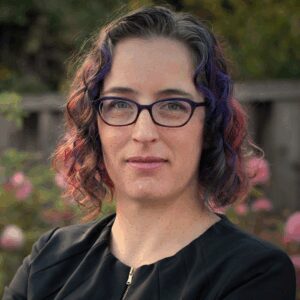September 17, 2025
In a September 2025 article for the journal Politics and Society, Isabella Mariani advocates for antitrust legislation that centers the autonomy of the user as part of a solution to the problems of the attention economy.


From its strategic location in the Bay Area, BESI is uniquely positioned to leverage UC Berkeley’s established expertise in the political economy of emerging technologies to inform our collective understanding of digital systems, biotechnology innovation, and climate-related technological development.
The BESI Technology cluster serves as a central hub, connecting dynamic research across campus on the political, economic, and social dimensions of technology. By bridging scholarship and policy, we address urgent questions about how technological change shapes democracy, sustainability, and human rights in contemporary society.

The rise of digital platforms has already revolutionized the way people work, pay for goods and services, and contract with each other. Big data and predictive analytics have transformed how corporations make money and how states govern.

“Disruptions” associated with biotechnological innovation have unsettled long-standing legal protections and collective norms across numerous sectors of the economy, extending even to the governance of the body.

Technology is implicated on both sides of the green transition as a potential source of solutions, but also out-of-control electricity consumption.
The erosion of protected markets (e.g., the taxi industry), licensed occupations (e.g., real estate), knowledge monopolies (e.g., news media, higher education), and shared expectations (e.g., the right to repair one’s own devices, appliances, and vehicles) under the influence of large technology firms is not inevitable, but the product of political and legal choices. These market reorganizations can, in some respects, be desirable: They may enhance efficiency, broaden inclusion, and reflect genuine commitments to fairness.
Yet, they have also concentrated economic power and wealth on an unprecedented scale, deepened social divisions, and eroded privacy and solidarity.

Research Lead, Technology

Distinguished Professor and Alann P. Bedford Chair in Asian Studies, Political Science

Assistant Professor of Practice, School of Information

Department Chair and Associate Professor, Geography

Associate Professor, Sociology

Lance Robbins Professor of Criminal Justice Law
BESI welcomes inquiries from UC Berkeley faculty and graduate-level scholars working in political economy. To learn more about our research programs and how to get involved in BESI, please use our contact form.